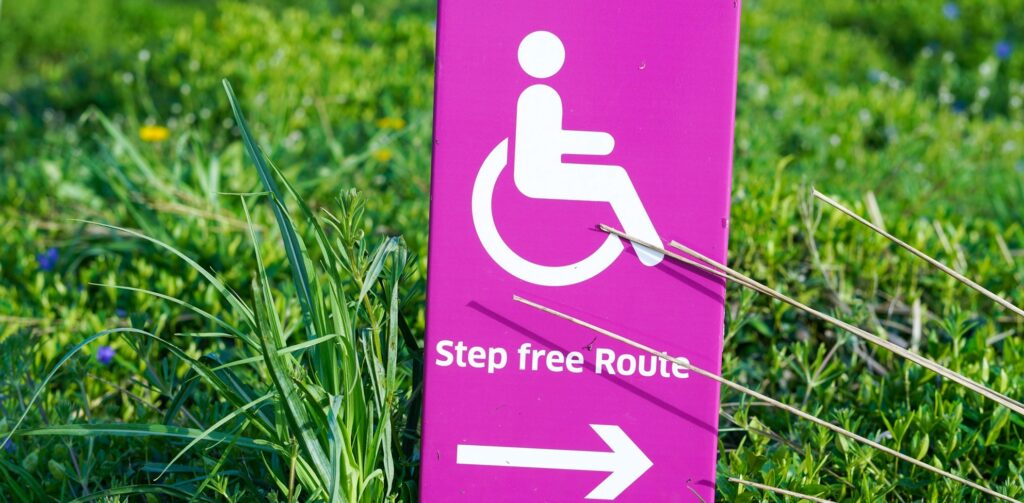
Requesting accommodations in the hiring process is a legal right—not a favor. But for many job seekers with disabilities, the steps to ask for one can feel unclear or intimidating. Whether you’re facing an inaccessible interview location or a timed online assessment that doesn’t reflect your abilities, you deserve a process that evaluates your talent—not your workaround skills.
This guide explains how requesting accommodations in the hiring process works, what employers are required to do, and how to ask without over-disclosing personal details.
Read more on: Does Your Race or Sex Help You Get Hired? Here’s the Legal and Practical Truth
Your Rights When Requesting Accommodations in the Hiring Process
The Americans with Disabilities Act (ADA) protects individuals with disabilities from discrimination in hiring. Under Title I, companies with 15 or more employees must provide reasonable accommodations during the hiring process—unless doing so would cause an undue hardship, which means a significant difficulty or cost.
Importantly:
- You don’t need to disclose your diagnosis, only the accommodation you’re requesting.
- Employers cannot ask disability-related questions or require a medical exam until after making a conditional job offer.
- These protections are outlined in the EEOC’s official guidance.
Examples of Accommodations You Can Request
Accommodations vary by person and role, but here are common examples used in hiring:
- Extra time for assessments if you have a processing delay
- Accessible formats (e.g., screen-reader-compatible materials or Braille)
- ASL interpretation or live captions during interviews
- Wheelchair-accessible locations or the option for a virtual interview
- Assistance navigating an online application system if it isn’t accessible
The accommodation must address a specific barrier, not offer an advantage. The goal is equal access—not preferential treatment.
When to Start Requesting Accommodations in the Hiring Process
Ideally, make your request as early as possible—for example:
- When you’re invited to complete an assessment
- When scheduling an interview
- When you notice accessibility barriers in the application platform
Early communication allows time for the employer to make adjustments.
How to Start Requesting Accommodations in the Hiring Process
While verbal requests are valid, written requests provide clarity and documentation.
✉️ Sample Email Template
Subject: Request for Interview Accommodation – [Your Name]
Dear [Recruiter/Hiring Manager],
I’m excited to interview for the [Job Title] position at [Company Name]. To ensure I can fully participate in the process, I’d like to request a reasonable accommodation. Specifically, I need [e.g., closed captioning for a video interview or extra time on the assessment].
Please let me know how best to proceed. I appreciate your consideration.
Best regards,
[Your Name]
You are not required to share your diagnosis—only the specific help you need to access the process.
What Employers Must Do When You Request Accommodations
Once you make a request, the employer must begin an interactive process, meaning they must work with you in good faith to find a reasonable solution.
According to EEOC enforcement guidance, here’s what employers can and cannot do:
✅ Can:
- Ask for limited documentation if your need isn’t obvious
- Offer alternative accommodations if the one you requested isn’t feasible
❌ Cannot:
- Ask for your exact diagnosis
- Require detailed medical records
- Ignore your request or delay without explanation
If a company dismisses your request without explanation, it may be a red flag about their broader culture and values.
If Requesting Accommodations in the Hiring Process Is Denied
While most companies comply with the ADA, some do push back. Here’s what to do:
- Request a written explanation – Employers must explain why the request creates an undue hardship.
- File a complaint with the EEOC – You can do this online through the EEOC charge filing portal.
- Consider legal advice – A disability rights attorney can help you interpret the law in your situation.
Inclusion starts with accessibility. If a company can’t honor that, it might not be a place where you can thrive long term.
Final Thoughts
Requesting accommodations in the hiring process is about fairness—not favors. You have the right to compete for jobs on equal footing. A company that values your skills will respect your request and work with you to create an inclusive experience.
So ask with confidence. You deserve a hiring process that evaluates your abilities—not your ability to navigate avoidable obstacles.
